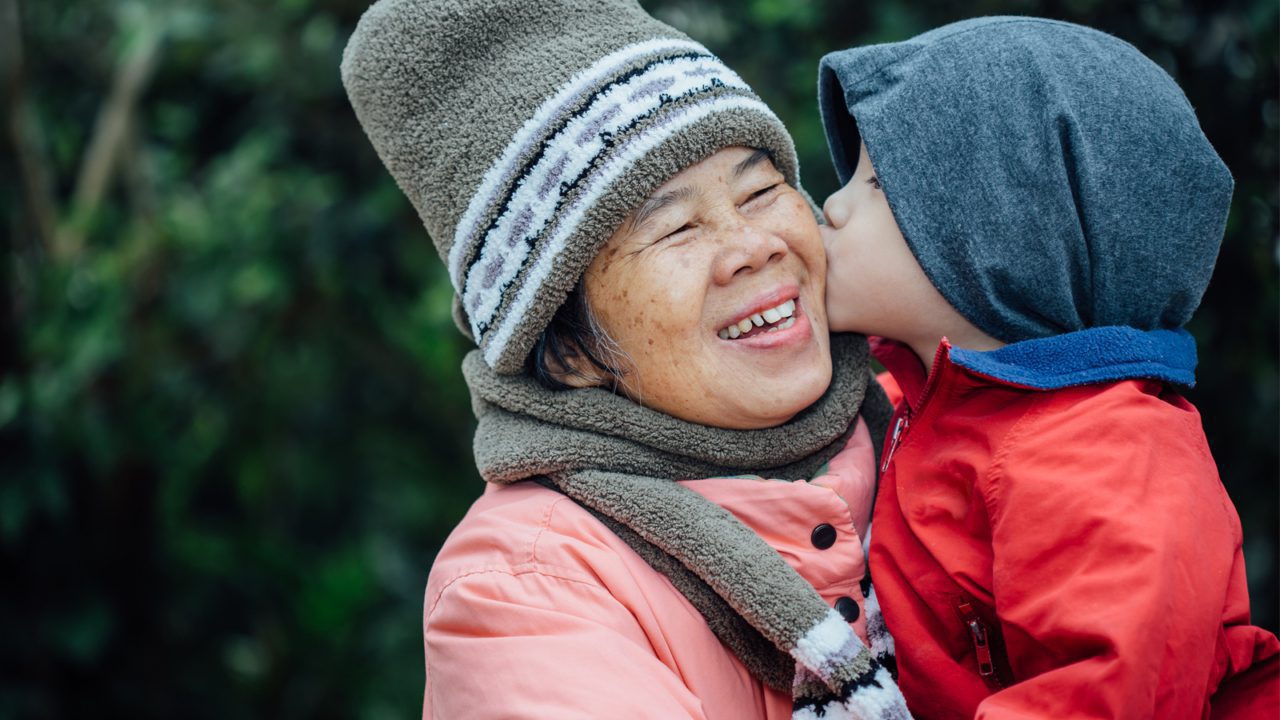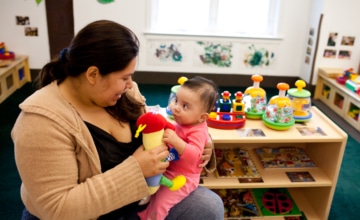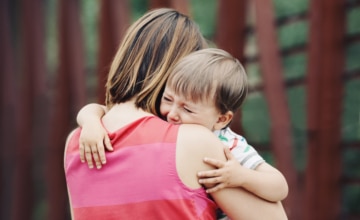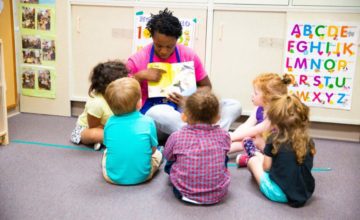Very often, the arrival of grandchildren paves the way for a new and different dynamic between you, your adult children, and their partners. Learn how to partner with your adult child to care for your grandchild.
Grandchildren—what a joy! And what changes they bring, not only to the lives of their parents but to the nature of family relationships as a whole. Very often, the arrival of grandchildren paves the way for a new and different dynamic between you, your adult children, and their partners. As one grandmother put it, “I raised six children, but my son is talking to me like I’ve never held a baby before.”
Becoming a Parent
Becoming a mom or dad is a new experience—and a life-changing one. First-time parents have a need to feel close to their babies and confident about caring for them. Over time, parents come to know their child’s unique cues, likes, and dislikes. With experience, they grow more confident in their ability to understand and care for their baby’s needs.
Developing a positive, respectful relationship with your adult children is one of the first—and best—ways to build a strong relationship with your grandchildren. How to do this? Here are some questions you might ask to let your child and his/her partner know that you respect and are interested in their approach to parenting.
- If your grandchild has a particular schedule for eating and sleeping yet.
- What and when to feed your grandchild.
- How to put your grandchild down to sleep (for example, with a pacifier or without? With a blanket or sleep sack)?
- How your grandchild shows that he is tired or hungry (if he is not yet talking).
- What activities, games, or toys your grandchild prefers.
- How the parents set limits—what they see as unacceptable behavior and how they want you to respond. Do you know how to soothe a crying baby? How to feed a baby, burp her, and play with her? Yes. But when you recognize your child’s important role as a parent, it often leads to more time and a better relationship with your grandchild.
Sharing the Care of Your Grandchild
Caring for a grandchild, whether it’s every day or once a month, builds a strong and important bond between the two of you. But at times, sharing the care of your grandchild can raise some challenges among the adults. Even when your relationship with your child is warm and positive, caring for your grandchild may sometimes stir up strong feelings. It isn’t uncommon for parents, at one point or another, to worry that their child might prefer to be with the grandparent, rather than with them. Parents may also worry, at times, that grandparents might be better at parenting than they are. And, of course, conflicts may arise over childrearing approaches.
Building Open Communication
When a challenging situation arises, it benefits all of you to work it out in a positive way. Open, respectful communication between the adults helps your grandchild thrive. Take a look:
Adele watches her granddaughter, Elisha (2 years old), each day, which she really enjoys. But her daughter, Patricia, is often late to pick Elisha up and never calls. Adele is really frustrated and angry. She feels it’s very disrespectful to her and upsetting to Elisha, who knows that when it gets dark, Mom should be there to get her. When Patricia does eventually show up, Adele is cold to her and her voice is tight and quiet. The two adults barely communicate. Elisha glances from one to the other and looks very tense.
Now let’s look at how Adele and Patricia work this out using the following three-step process:
Step 1: Tune in to your own feelings.
Adele recognizes that she is angry, frustrated, and feels taken advantage of. She also sees that her reaction—giving Patricia the cold shoulder—is adding to Elisha’s discomfort and is not solving the problem.
Step 2: Share your perspective in a nonjudgmental way and ask about your child’s perspective.
Adele talks with Patricia: ”You are doing a great job of working and taking care of Elisha all on your own. And I’m happy to support you in any way I can. While I understand that things come up sometimes, I don’t like that you are arriving later and later to get Elisha and don’t check with me to see if I’m available. For example, last week, I had to cancel dinner with a friend because you weren’t here to get Elisha on time. I also need to know when you are running behind so that I can help Elisha understand when you will be here. I really want to make a plan that works for both of us. I’d like to hear your perspective and figure out what we can do to work this out together.”
Step 3: Problem-solve together.
Given her mother’s very calm and respectful approach, Patricia does not feel attacked or criticized. She is more open to hearing her mother’s perspective. Together they make a plan that Patricia will call Adele in advance if she is going to be late. They also agree that if Adele doesn’t have the flexibility to keep Elisha late, she will let Patricia know a few days in advance, if possible.
Relationships Grow and Change With Time
A relationship is a living thing that grows and changes over time. This is true of your relationship with your grandchild and your relationship with your own adult child. Communication is the key to making any partnership work. Keeping the adult relationships warm and respectful helps you develop an even closer bond with your grandchild.





